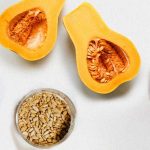Natural Gastrointestinal (GI) Wellness
![]()
GI Disease is on the Rise
Studies show that in recent years there has been an increase in people suffering from gastrointestinal disorders. So much so that in May 2022, for every ten adults in the world, four experience functional GI disorders.
So how do you stop yourself from becoming a part of this statistic? Education is the first step.
Continue reading to learn about the GI tract, common GI diseases, and natural remedies for greater wellness.
What is the Gastrointestinal (GI) Tract?
The GI tract consists of the organs which food and liquids travel through before leaving your body as urine and feces. The GI tract is a part of the digestive tract and includes the following organs: mouth, throat, esophagus, stomach, small intestine, large intestine, rectum, and anus
What are Gastrointestinal diseases?
There are two types of GI diseases:
- Functional diseases
- Structural diseases
Functional GI Tract Diseases:
When you have a functional GI disease, your GI tract looks normal but is not performing properly. Functional GI is the most common type of GI disease.
Some common examples include constipation, irritable bowel syndrome (IBS), nausea, food poisoning, diarrhea, Gerd gas, and bloating.

Structural GI Tract Diseases:
Structural diseases occur when your bowel looks abnormal and has a structural disruption. Common examples of structural GI diseases include strictures, stenosis, hemorrhoids, diverticular disease, colon polyps, colon cancer, and inflammatory bowel disease. If needed, sometimes the structural disruption is removed with surgery.
Some functional GI tract diseases can cause a structural GI disease. For example, constipation (a functional GI disease) can cause strain on your GI tract and digestive system. Sometimes, constipation can lead to fissures and hemorrhoids.
Natural Remedies for Your GI Tract
Fortunately, there are many practices you can do to minimize your risk of GI Disease.
Making small adjustments in your life can have a big impact on your GI tract’s function.
- Add fiber to your diet: One of the most common issues people experience is not consuming enough fiber. Fiber helps your GI tract normalize bowel movements and make stool easier to pass. In turn, this minimizes the chance of constipation. (Wondering what foods are high in fiber? Learn more here.)
- Balance out your gut health: Probiotics help support your body’s GI tract by balancing the level of good bacteria and bad bacteria that naturally lives within your body. Additionally, good bacteria aids your GI by helping to break down and digest food, fight off bad bacteria, and support the lining of your gut. You can get probiotics in foods such as yogurt, and kombucha, or in fermented vegetables like pickles.
- Don’t wait to “go”: If you feel the urge to go, don’t wait. Resisting a bowel movement can result in constipation, which can cause more issues for your GI tract.
- Check Your Medications: Many common medications can cause side effects on your GI tract. Talk with your doctor if this becomes a frequent occurrence.
When to Seek Aid
Although constipation or diarrhea every once in a while is typically no cause for concern, it’s important to talk to your doctor if you experience these symptoms persistently, have excessive pain, or find it difficult to have bowel movements.
If you’re wondering what other steps you can take to support your GI tract, give us a call at (860) 829-0707, or drop by our office at 1263 Berlin Turnpike Unit B
Berlin, Connecticut.












